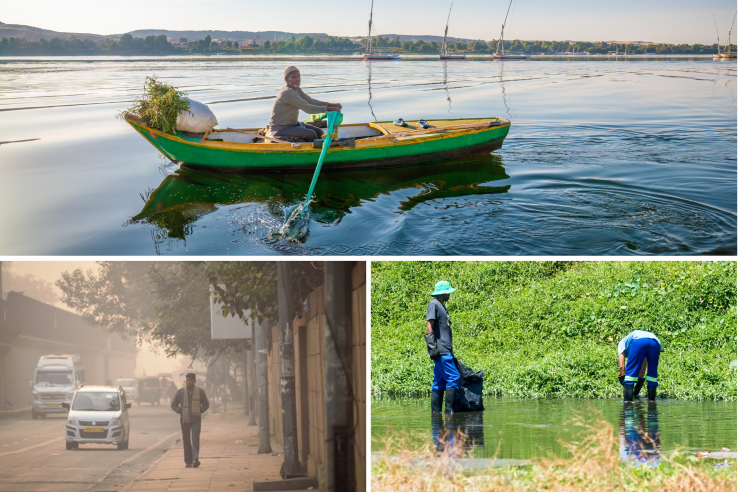Air and Water Lab (AWL) Request for Proposals

Eligibility
J-PAL affiliated professors, J-PAL postdocs, J-PAL invited researchers, and J-PAL staff with PhDs are eligible to apply to AWLs. To be considered for AWL funding, all proposals are required to first reach out to the relevant lab team to learn more about matchmaking opportunities and requirements.
- India – Solutions and Advancements through Research for Water and Air (SARWA): at [email protected]
- Cape Town, South Africa – Water, Air, and Energy (WAE) Lab: Archana M V at [email protected].
- Egypt – Hub of Advanced Policy Innovation for the Environment (HAPIE): HAPIE serves as J-PAL’s regional Air and Water Lab in Egypt and as such it serves as the Egypt Impact Lab (EIL)’s extension in a new thematic area related to environment, energy, and climate change. Please navigate to the HAPIE RFP page for instructions. For questions, contact [email protected].
Learn more and apply
To learn more about how to apply to the Air and Water Labs, visit the labs’ respective request for proposals pages:
FAQs
Am I eligible to apply to the Air and Water Labs?
J-PAL affiliates, J-PAL postdocs, J-PAL invited researchers, and J-PAL staff with PhDs are eligible to apply to AWLs. Graduate students who have a J-PAL affiliate or K-CAI invited researcher on their thesis committee are eligible to apply for travel/proposal development grants or up to $50,000 in pilot or full-scale randomized evaluation funding. There is a strong preference for students with local presence and expertise in addition to economics expertise.
Can a PI apply for funding for different projects under both K-CAI and an AWL?
For each PI (principal or co-PI), three applications are allowed per initiative per year (K-CAI and the three AWLs count as four separate initiatives). Please do not submit the same proposal to multiple initiatives in a similar time frame.
I am a policymaker or implementing organization interested in learning more or exploring collaboration. Can I reach out to the relevant Air and Water Lab for a conversation?
The Air and Water Labs are collaborations with the City of Cape Town, South Africa, several state and national government departments in India, and the Ministry of Planning and Economic Development of Egypt. Interested policymakers and implementing organizations are welcome to reach out to the relevant Air and Water Lab (contacts listed above) or the general email address [email protected].